detail profile indrek taalmaa

Riwayat Hidup
Indrek Taalmaa (born July 9, 1967) is an Estonian stage, television, voice, film actor, and theatre director whose career began in the early 1990s.
Indrek Taalmaa was born and raised in the town of Viljandi.
He graduated from Viljandi Secondary School No.
4 in 1985.
In 1986, he entered the Drama School of the Tallinn State Conservatory (now, the Estonian Academy of Music and Theatre), but was conscripted into the Soviet Army and spent two years deployed to Afghanistan during the Soviet–Afghan War.
Taalmaa's first significant television role was as Carl Danhammer in the 2005 Ilmar Raag-directed Eesti Televisioon (ETV) television film August 1991; a dramatization of the failed Soviet attempt to suppress the independence movement in Estonia.
The following year, he portrayed Konstantin Päts, the first head of government, in the twelve-part ETV historical drama television mini-series Tuulepealne maa.
Also, in 2006, he appeared on Finnish television in the role of Igor Golitsyn in the Tapio Piirainen-directed crime drama film Bodomin legenda.
Taalmaa began his film career in several short films and as a voice actor in animated short films in the early 1990s.
His first significant film role was that of Oskar Elevant in the 1997 historical comedy Minu Leninid (All My Lenins), directed by Hardi Volmer.
Other roles followed in the 2005 Rainer Sarnet-directed thriller Libahundi needus (Curse of the Werewolf) and the 2006 Elmo Nüganen-directed comedy Meeletu (Mindless); both of which were originally aired on Estonian television, then released theatrically.
In 2007, he played the role of Talesh in the Peeter Simm-directed biographical drama film Georg, which chronicled the life of Estonian singer and actor Georg Ots.
In 2008, he played the role of President of Estonia Konstantin Päts in the Ain Mäeots-directed Exitfilm biographical drama Taarka, based on the play of the same name by Kauksi Ülle about the difficult life of Seto folk singer Hilana Taarka.
Taalmaa has appeared in over thirty short films, animated films, and feature films.
Notable appearances include roles in the 2009 Andrus Tuisk-directed road-movie Pangarööv (Bank Robbery), the 2013 René Vilbre-directed family film Väikelinna detektiivid ja valge daami saladus, the 2017 Sulev Keedus-directed drama Mehetapja/Süütu/Vari (The Manslayer/The Virgin/The Shadow), the 2017 Andres Puustusmaa-directed comedy Rohelised kassid (Green Cats), and the 2018 Moonika Siimets-directed period drama Seltsimees laps (The Little Comrade).
In 2021, he appeared in the role of Landlord in the Ergo Kuld directed comedy film Jahihooaeg (Hunting Season) alongside Harriet Toompere, Mirtel Pohla and Grete Kuld.
The following year, he appeared in the Ergo Kuld directed romance-drama Soo (The Bog), screen written by Martin Algus and based on the novel 1914 novel of the same name by Oskar Luts.
In 2012, when the 1994 Disney animated musical film The Lion King was dubbed into the Estonian language, Taalmaa voiced the character Pumbaa.
Indrek Taalmaa is in a long-term relationship with actress Karin Tammaru.
The couple have two sons and reside in Tallinn.
Info Pribadi
Peran Yang Di Mainkan Indrek Taalmaa
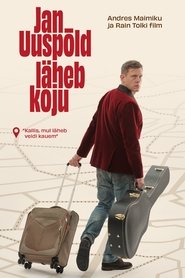 When actor Jan Uuspld has to...
When actor Jan Uuspld has to...Jan Uuspõld Goes Home 2025
When actor Jan Uuspõld has to film a promotional video for his summer fling Britta’s beauty salon, his wife calls him and lays down the law: he must come home and earn back all the money he has squandered. Since Jan always does what women want, he begins searching for a way out of the tricky situation. The solution seems to be participating in a remake of a film about his life. Unfortunately, the director decides to sideline Jan due to his poor public reputation. Left with no other choice, Jan embarks on a summer tour starring himself. But, as always, life happens when you have the best intentions. On his long journey home, Jan encounters a sex guru, men’s rights activists, manic fans, and even the Creator himself. He is both humbled and exalted, leading him to discover something within himself that he never knew was there.
 A comical triptych about residents in...
A comical triptych about residents in...The Black Hole 2025
A comical triptych about residents in an apartment block district who long for a better life. When a black hole mysteriously appears in a lilac bush, they will have to face aliens, a giant spider, and an Austrian in breeches.
 Young artist Toomas Haava returns from...
Young artist Toomas Haava returns from...The Bog 2022
Young artist Toomas Haava returns from Paris, back to his brother's bog farm and wraps himself unintentionally in a conflict with the violent and terrifying Madjak, who is harassing a local girl, Hilda, also known as Wildcat. Enchanted by the mysterious beauty, Toomas finds himself in the middle of a fight for love.
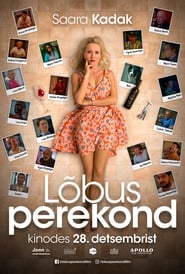 Artur is an Armenian guy who...
Artur is an Armenian guy who...Happy Family 2018
Artur is an Armenian guy who dreams about a career in filmmaking, but his grandfather wants him to take over the family wine business. When a bad review from an Estonian critic threatens to ruin the family business, Artur has to go to Tallinn to set things straight. There he meets the feisty Ingrid and things take an unexpected turn.
 In the midst of Stalinist tyranny...
In the midst of Stalinist tyranny...The Little Comrade 2018
In the midst of Stalinist tyranny, six-year-old Leelo's mother is sent to a prison camp. Haunted by her mother's last words telling her to be a good kid, Leelo vows to be on her best behaviour in the confusing grown-up world in the hope that it will bring her mother back.
 The film consists of three chapters...
The film consists of three chapters...Manslayer/Virgin/Shadow 2017
The film consists of three chapters. The Manslayer takes place more than a hundred years ago. The leading character Maara is a young bride who is about to start her life in her new family. The Virgin, set in the spring of 1949, tells the story of a young woman called Elina, who has been deported from Ingria into Estonia during the previous war. The Shadow moves in the present, on the border of real life and fantasy. The main character, Luna Lee, has decided to flee from home. Is there anything besides emptiness somewhere? The film is led by the singularity of the leading character - Maara, Elina and Luna Lee are all played by the same actress.
 Jussi Ketola returns to Finland from...
Jussi Ketola returns to Finland from...The Eternal Road 2017
Jussi Ketola, returns to Finland from the great depression struck America only to face growing political unrest. One summer night of 1930, nationalist thugs violently abduct Ketola from his home. Beaten and forced to walk the Eternal Road towards a foreign Soviet Russia, where cruelty seems to know no end, his only dream is to return to his family cost it what it may. Hope dies last.
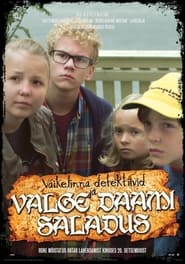 In a quiet resort town Haapsalu...
In a quiet resort town Haapsalu...Kid Detectives and the Secret of the White Lady 2013
In a quiet resort town Haapsalu four kids are spending their summer holidays together. Suddenly they are dragged into events that started in the 15th century in the local bishop's stronghold. The children must solve a difficult mystery of a clock robbery and they have to find a treasure that has been lost for centuries and contains a formula of making gold.
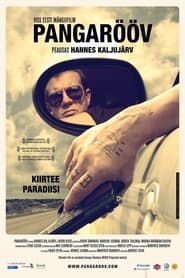 When a former fistfighter Madis leaves...
When a former fistfighter Madis leaves...Bank Robbery 2009
When a former fistfighter Madis leaves the prison, he feels he will get another chance in life. Nothing can go wrong this time. Madis will be accompanied by his nephew who has something completely opposite in his mind. A game begins where both the weak and the strong get more and more opportunities.
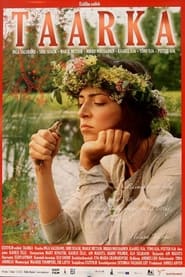 The first film in the Seto...
The first film in the Seto...Taarka 2008
The first film in the Seto language in the world speaks about the brightest heroine of a small people, the folk singer Hilana Taarka, a woman who lived her whole life as an outcast in a small chimney-less hut; as an unmarried mother of children in poverty, begging her bread, doing odd jobs and singing. She always sang the truth, sometimes bitter, sometimes funny, sometimes cruel. She was feared, despised and coveted. Taarka sang throughout her remarkable life, throughout her fate, from a small Seto village to international fame. And she sang well. Really well. Taarka became the Mother of the Song, a legend. But as a woman, as a member of the community, the Seto people never really accepted her. Taarka - a despised woman and a worshiped singer.
 Unforgettable melodies unique timbre and a...
Unforgettable melodies unique timbre and a...Georg 2007
Unforgettable melodies, unique timbre and a memorable, soul-stirring voice. A mystery for women and authority for men, his talent was revered by the highest ranks of the Soviet Union and millions of ordinary people. Georg Ots took the stage when a huge country was recovering from the horrors of war, and his voice returned them faith in a bright future. Few people know what his life was really like.
 After being whacked on the head...
After being whacked on the head...Alien or: The Escape of Valdis in 11 Episodes 2006
After being whacked on the head with a shovel, Valdis no longer shows interest in the things that used to make his life worthwhile: alcohol, techno, cars and fights. His friends desperately try to help him regain his memory, but nothing works.
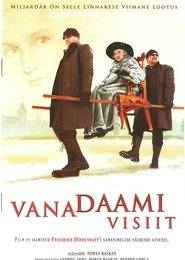 As a young woman Claire left...
As a young woman Claire left...Visit of an Old Lady 2006
As a young woman, Claire left her hometown in disgrace. Now she is old and unimaginably rich, as for the first time she returns. The town is nearly bankrupt and in urgent need of money. Everybody hopes Clara will come to the rescue. And she will. However, there is a condition: somebody must kill the man who was her lover all those years ago.
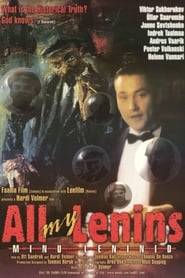 Young and active nationalist Aleksander Keskla...
Young and active nationalist Aleksander Keskla...All My Lenins 1997
Young and active nationalist Aleksander Kesküla makes up his mind to use Lenin, the Bolsheviks' leader, in order to start a revolution in Russia with German money and create a new national state of Estonia in the north-east of Russia. For security reasons, five doubles will be found and trained for Lenin. All of them are finally sent to Russia to instigate the revolution. How will the real Lenin put up with all this?
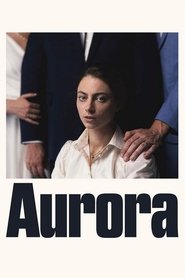 Aurora the daughter of a religious...
Aurora the daughter of a religious...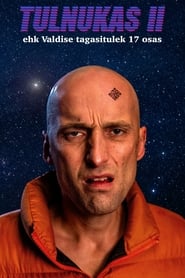 Valdis returns after 20 years his memory...
Valdis returns after 20 years his memory... After the death of the worlds...
After the death of the worlds...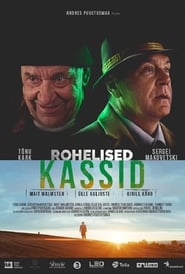 This is a story of two...
This is a story of two... Living alone in an Estonian slum...
Living alone in an Estonian slum...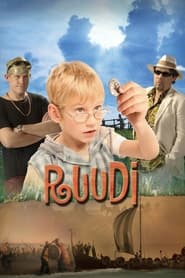 A family comedy about a 7yearold...
A family comedy about a 7yearold...